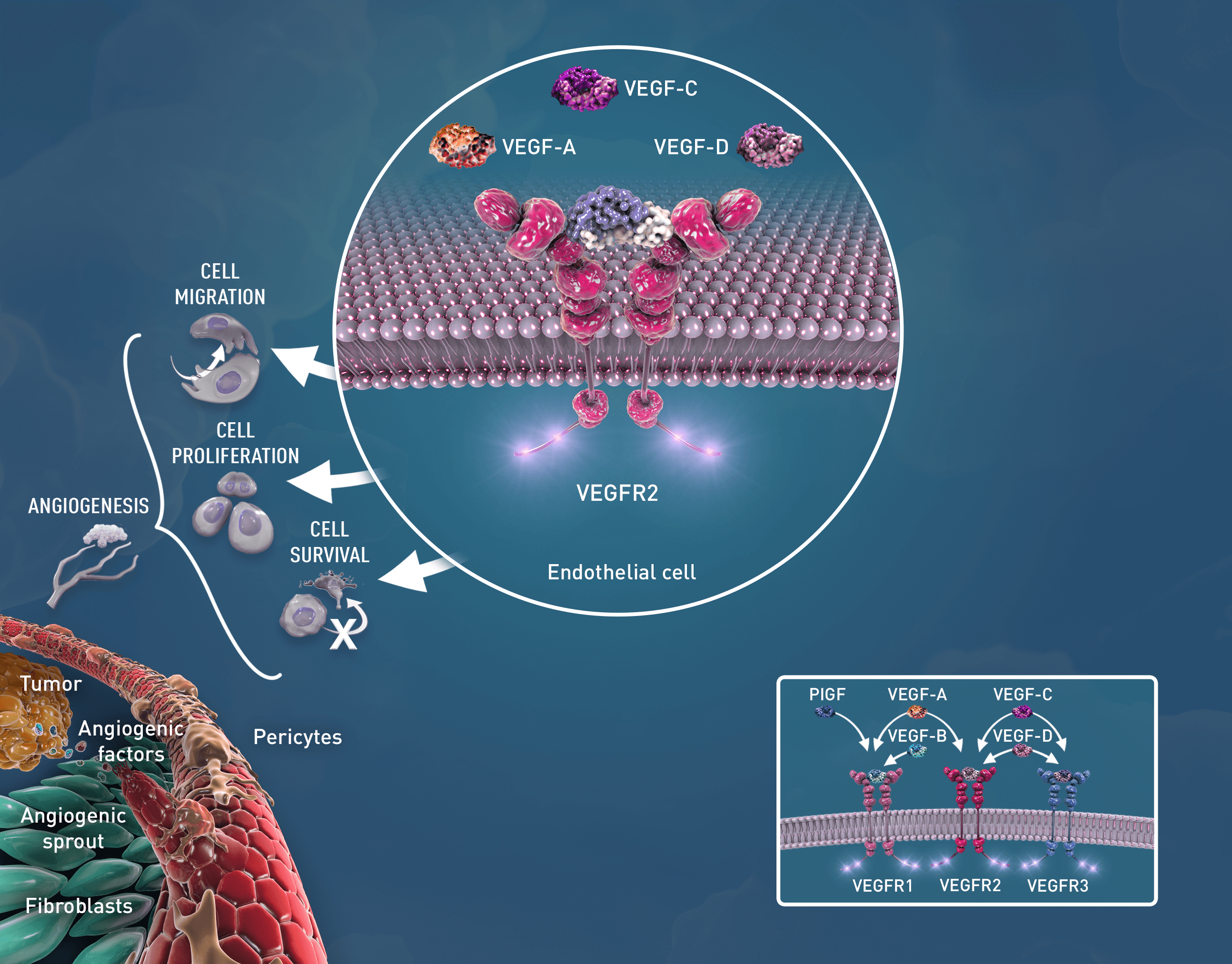PIPELINE > TRIAL OVERVIEW
VEGF Receptor-2 Antagonist
Ramucirumab

Adams RH and Alitalo K1; Hicklin DJ and Ellis LM2
Target
Molecule
Clinical Development
References
- Adams RH, Alitalo K. Nat Rev Mol Cell Biol. 2007;8(6):464-478.
- Hicklin DJ, Ellis LM. J Clin Oncol. 2005;23(5):1011-1027.
- Olsson AK, et al. Nat Rev Mol Cell Biol. 2006;7(5):359-371.
- Lu D, et al. J Biol Chem. 2003;278(44):43496-43507.
- Zhu Z, et al. Leukemia. 2003;17(3):604-611.
For information on trial enrollment, locations, and more, call
1-800-545-5979.
or visit www.clinicaltrials.gov for more information on this trial

